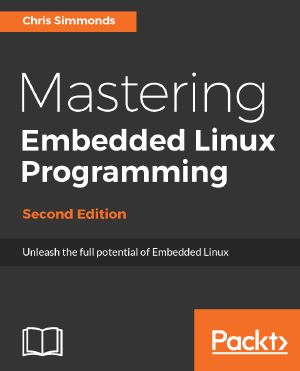Mastering Embedded Linux Programming – Second Edition

- Authors
- Simmonds, Chris
- Publisher
- Packt Publishing Limited
- Tags
- com051010 - computers , programming languages , general , com088010 - computers , system administration , linux and unix administration , science , com046070 - computers , operating systems , linux , programming
- Date
- 2017-06-30T00:00:00+00:00
- Size
- 3.61 MB
- Lang
- en
Linux is a highly-respected open source operating system that can scale from small devices to large supercomputers. This book describes how to employ Linux at the bottom end of the scale to create efficient, secure, and cost-effective products.
Embedded Linux runs many of the devices we use every day, from smart TVs to WiFi routers, test equipment to industrial controllers - all of them have Linux at their heart. Linux is a core technology in the implementation of the inter-connected world of the Internet of Things.
The comprehensive guide shows you the technologies and techniques required to build Linux into embedded systems. You will begin by learning about the fundamental elements that underpin all embedded Linux projects: the toolchain, the bootloader, the kernel, and the root filesystem. You’ll see how to create each of these elements from scratch, and how to automate the process using Buildroot and the Yocto Project.
Moving on, you’ll find out how to implement an effective storage strategy for flash memory chips, and how to install updates to the device remotely once it is deployed. You’ll also get to know the key aspects of writing code for embedded Linux, such as how to access hardware from applications, the implications of writing multi-threaded code, and techniques to manage memory in an efficient way. The final chapters show you how to debug your code, both in applications and in the Linux kernel, and how to profile the system so that you can look out for performance bottlenecks.
By the end of the book, you will have a complete overview of the steps required to create a successful embedded Linux system.